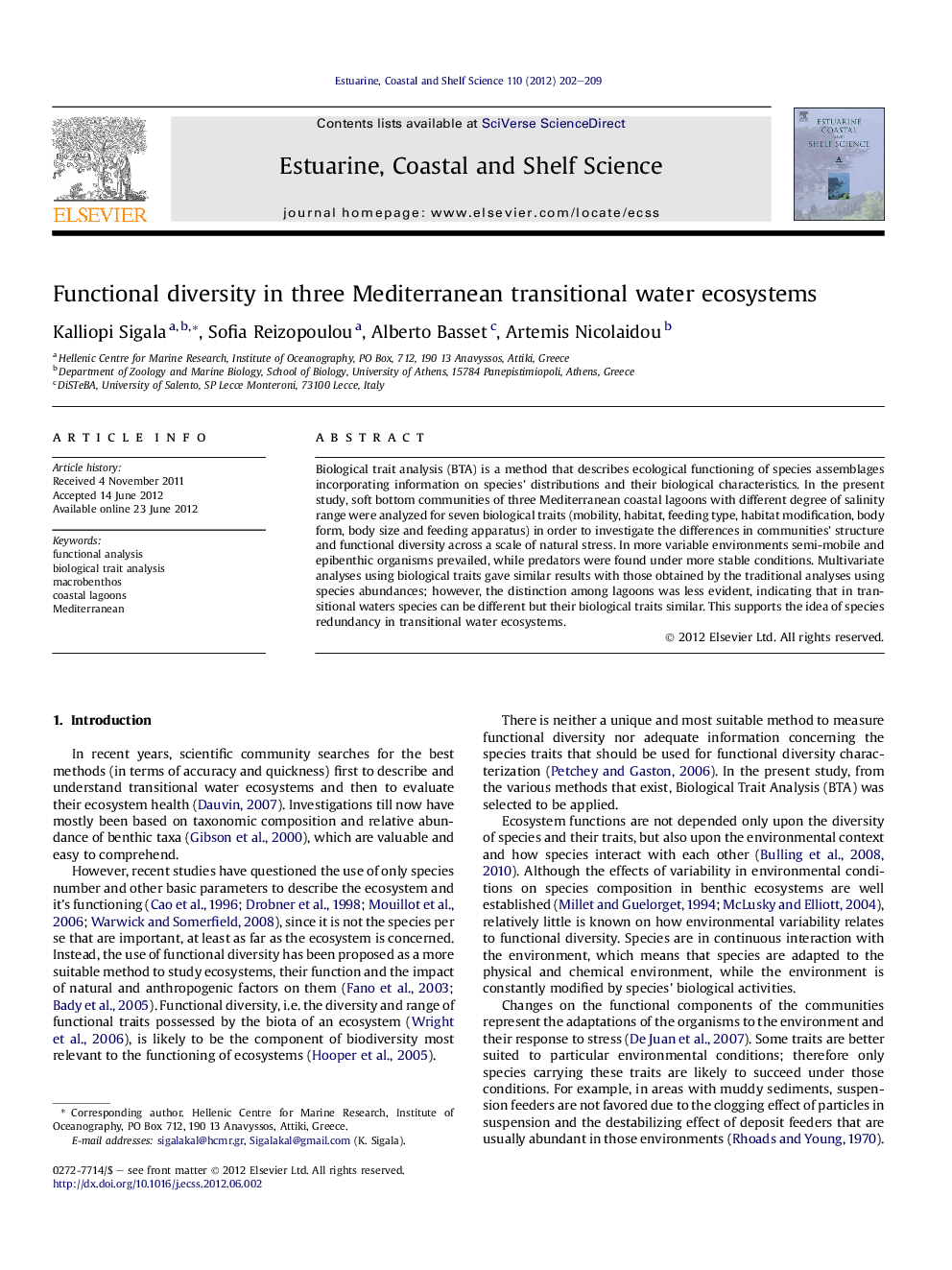| Article ID | Journal | Published Year | Pages | File Type |
|---|---|---|---|---|
| 4540127 | Estuarine, Coastal and Shelf Science | 2012 | 8 Pages |
Biological trait analysis (BTA) is a method that describes ecological functioning of species assemblages incorporating information on species' distributions and their biological characteristics. In the present study, soft bottom communities of three Mediterranean coastal lagoons with different degree of salinity range were analyzed for seven biological traits (mobility, habitat, feeding type, habitat modification, body form, body size and feeding apparatus) in order to investigate the differences in communities' structure and functional diversity across a scale of natural stress. In more variable environments semi-mobile and epibenthic organisms prevailed, while predators were found under more stable conditions. Multivariate analyses using biological traits gave similar results with those obtained by the traditional analyses using species abundances; however, the distinction among lagoons was less evident, indicating that in transitional waters species can be different but their biological traits similar. This supports the idea of species redundancy in transitional water ecosystems.
